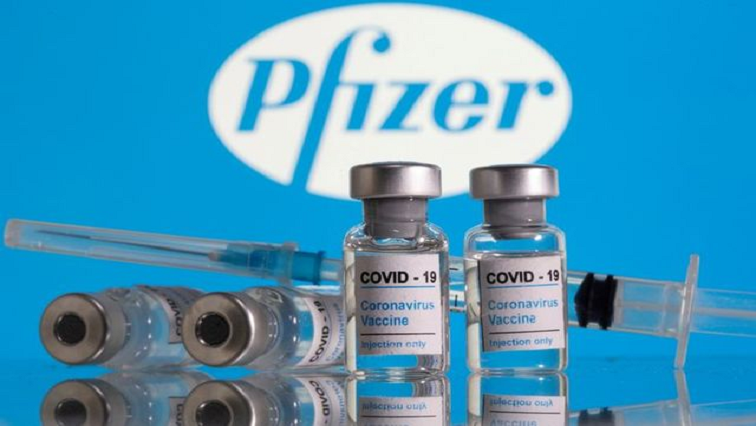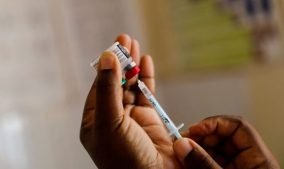A new study shows that the Pfizer-BioNTech COVID-19 vaccine is indeed able to protect against severe disease and death even regarding the variant of the virus first detected in South Africa. South African scientists have been meeting to discuss the vaccine’s efficacy amid concerns the vaccine may not be as effective against the new variant.
The study, published in the New England Journal of Medicine, involved pharmaceutical companies at the Medical Branch of the University of Texas.
Professor Pei-Yong Shi was the co-author of the study, “I would not say reduced the two thirds of the efficacy, I would say that it reduces the neutralising activity of the antibodies by two thirds because the neutralising antibody is just one of the ways for our immune system to protect us after our vaccinations. There are other immunities such as T-cells and other immune responses which will also come into play to protect us. So by reducing by two-fold the antibody activity, doesn’t mean to reduce the efficacy at all. I would say two-thirds of the neutralizing activity has been reduced.”
He says the vaccine in its current form is still effective against the 501Y.V2 variant.
“The vaccine will still be able to help us to prevent severe disease and death because right now in the scientific field, we still don’t know the minimum requirement of the antibody levels that is required to protect us from being infected, or severe disease or death so that number remains to be defined. So that’s why I say by reducing two-thirds, let’s say starting from 600 to 200, this 200 might still be a way above the threshold that is able to protect us from being infected and severe disease particularly.”
SABC correspondent Sherwin Bryce-Pease spoke to Professor Pei-Yong Shi:
Swapping vaccines
South Africa is considering swapping or selling its AstraZeneca doses, after a small local trial where participants were on average 31 years-old, showed the vaccine offered minimal protection against mild to moderate illness caused by the 501Y.V2 variant.
Officials are more confident about the J&J shot because it was shown to be effective against severe illness in the local leg of a large global trial.
The study published on Wednesday took into account all key mutations of the 501Y.V2 variant. A paper published in late January assessed the impact of only three key mutations of the variant.
Scientists say that because the new study’s findings come from a laboratory, it is not easy to extrapolate what they might mean in the real world.
Peter English, a consultant in communicable disease control, said it was “far from proven” that the Pfizer vaccine would be less effective against the 501Y.V2 variant. He said cellular immunity, as well as antibodies, was important in protecting against the virus and that scientists did not know the level of neutralising antibodies needed for immunity.
“Our scientists will be meeting to discuss it (the study) and they will advise the minister,” health ministry spokesperson Popo Maja said.
Barry Schoub, chairperson of the Ministerial Advisory Committee on vaccines, said the committee would discuss the study alongside information on other vaccines. Asked to comment on the findings, he said: “The Pfizer vaccine is enormously effective at 95%, so even if there is quite a significant reduction there still will be quite a bit of remnant efficacy left. It is very likely that it will protect to a reasonable extent, certainly against severe illness and mild to moderate to some extent,” he said.
‘Strong enough’
Richard Mihigo, an immunisation official at the WHO’s Africa office, told a news conference the antibody response to the variant in the Pfizer study was “strong enough.”
Linda-Gail Bekker, co-lead investigator of the South African arm of J&J’s global trial, said she would recommend rolling out the Pfizer vaccine but monitoring it in the same way as the J&J shot, which is being administered in an “implementation study” targeting up to 500 000 health workers to further test it.
Health Minister Zweli Mkhize said on Wednesday South Africa was expecting 500 000 doses of the Pfizer vaccine initially and about 7 million doses by June.
A spokesperson for regulator SAHPRA said Pfizer’s registration application was under review and declined further comment.
South Africa, with nearly 1.5 million cases and about 48 500 deaths, has recorded almost half the COVID-19 fatalities and over a third of confirmed infections in Africa. It lagged richer Western nations in launching its immunisation campaign.
The government plans to vaccinate 40 million people, two-thirds of the population.
WHO lists Pfizer/BioNTech vaccine for emergency use
The World Health Organisation in January listed the COVID-19 vaccine from Pfizer and BioNTech for emergency use, citing that the move opens the door for countries to expedite their own approvals to import and give the shot.
The WHO’s review found that the vaccine met the must-have criteria for safety and efficacy set out by WHO, and that the benefits of using the vaccine to address COVID-19 offset potential risks, the WHO said in a statement.
“This is a very positive step towards ensuring global access to COVID-19 vaccines. But I want to emphasize the need for an even greater global effort to achieve enough vaccine supply to meet the needs of priority populations everywhere,” said Dr. Mariangela Simao, WHO assistant-director general for Access to Medicines and Health Products.
– Additional reporting by Reuters.






